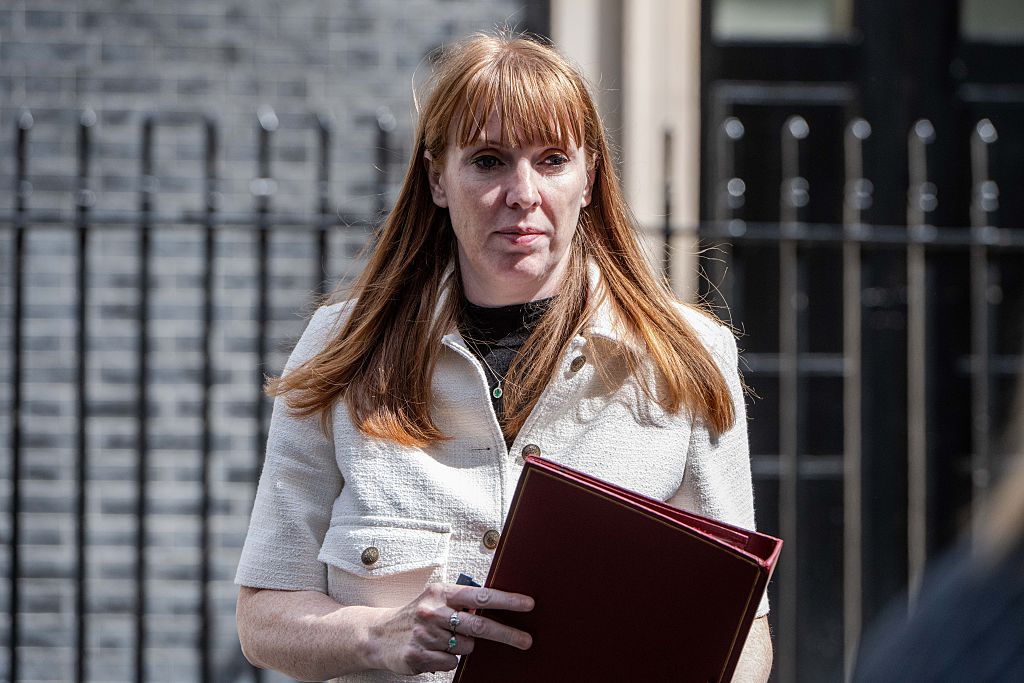Rayner quits over stamp duty controversy: should the tax be abolished?
Angela Rayner has relinquished her deputy prime minister role, but does ‘Rayner-gate’ flag how unfair the stamp duty land tax rules are in the first place?


Get the latest financial news, insights and expert analysis from our award-winning MoneyWeek team, to help you understand what really matters when it comes to your finances.
You are now subscribed
Your newsletter sign-up was successful
Want to add more newsletters?

Twice daily
MoneyWeek
Get the latest financial news, insights and expert analysis from our award-winning MoneyWeek team, to help you understand what really matters when it comes to your finances.

Four times a week
Look After My Bills
Sign up to our free money-saving newsletter, filled with the latest news and expert advice to help you find the best tips and deals for managing your bills. Start saving today!
When Angela Rayner, the now-former deputy prime minister and housing secretary, was caught underpaying stamp duty on her £800,000 seaside flat, it was widely expected that she would step down.
The government’s ethics adviser found Rayner had breached the ministerial code when it came to tax affairs.
Rayner had referred herself to the Independent Adviser of Ministerial Standards, Laurie Magnus, after an article in The Telegraph exposed the tax scandal.
MoneyWeek
Subscribe to MoneyWeek today and get your first six magazine issues absolutely FREE

Sign up to Money Morning
Don't miss the latest investment and personal finances news, market analysis, plus money-saving tips with our free twice-daily newsletter
Don't miss the latest investment and personal finances news, market analysis, plus money-saving tips with our free twice-daily newsletter
Rayner has been replaced by David Lammy, who previously held the foreign secretary role.
In her letter of resignation, Rayner said: “I deeply regret my decision to not seek additional specialist tax advice given both my position as housing secretary and my complex family arrangements. I take full responsibility for this error.”
Rayner, who was Keir Starmer’s right-hand woman, has put Labour in a deeply embarrassing position. A strong working class woman with the ability to help Labour connect with parts of the electorate, Rayner has been a role model in her now former role of deputy prime minister.
This is a blow Labour can not afford ahead of the Autumn Budget – a Budget that will be watched closely for potential tax hikes as chancellor Rachel Reeves continues to face mounting pressure to strengthen the economy.
Stamp duty problems
If there is one thing Rayner’s career-damaging mistake may have exposed, it is that stamp duty is unfair and unclear, and easy to avoid (clearly).
Yes, most taxes are deemed unfair – but the fact is stamp duty simply makes housing unaffordable as house prices remain high, it makes the market illiquid and makes it harder for people to buy a house or move.
It restricts labour mobility and is a barrier to economic growth. Economic growth that Reeves really wants.
The housing market is broken and stamp duty should be scrapped – the system does not lend itself to growth, but one that instead stifles it.
Stamp duty was introduced in 1694 - well over 300 years ago – as a way of putting a stamp on official documents to allow tax collection.
While Labour is not considering any such abolition of this hated tax, there have been rumours for it to be replaced by a new levy on properties priced over £500,000.
It could benefit some buyers, but we do not yet know the finer details of the real impact it could have, should such a property tax come into play.
People selling in London could be hardest hit, with the average property price now £566,000, according to the latest data from HM Land Registry.
Get the latest financial news, insights and expert analysis from our award-winning MoneyWeek team, to help you understand what really matters when it comes to your finances.
Kalpana is an award-winning journalist with extensive experience in financial journalism. She is also the author of Invest Now: The Simple Guide to Boosting Your Finances (Heligo) and children's money book Get to Know Money (DK Books).
Her work includes writing for a number of media outlets, from national papers, magazines to books.
She has written for national papers and well-known women’s lifestyle and luxury titles. She was finance editor for Cosmopolitan, Good Housekeeping, Red and Prima.
She started her career at the Financial Times group, covering pensions and investments.
As a money expert, Kalpana is a regular guest on TV and radio – appearances include BBC One’s Morning Live, ITV’s Eat Well, Save Well, Sky News and more. She was also the resident money expert for the BBC Money 101 podcast .
Kalpana writes a monthly money column for Ideal Home and a weekly one for Woman magazine, alongside a monthly 'Ask Kalpana' column for Woman magazine.
Kalpana also often speaks at events. She is passionate about helping people be better with their money; her particular passion is to educate more people about getting started with investing the right way and promoting financial education.
-
 Should you buy an active ETF?
Should you buy an active ETF?ETFs are often mischaracterised as passive products, but they can be a convenient way to add active management to your portfolio
-
 Power up your pension before 5 April – easy ways to save before the tax year end
Power up your pension before 5 April – easy ways to save before the tax year endWith the end of the tax year looming, pension savers currently have a window to review and maximise what’s going into their retirement funds – we look at how
